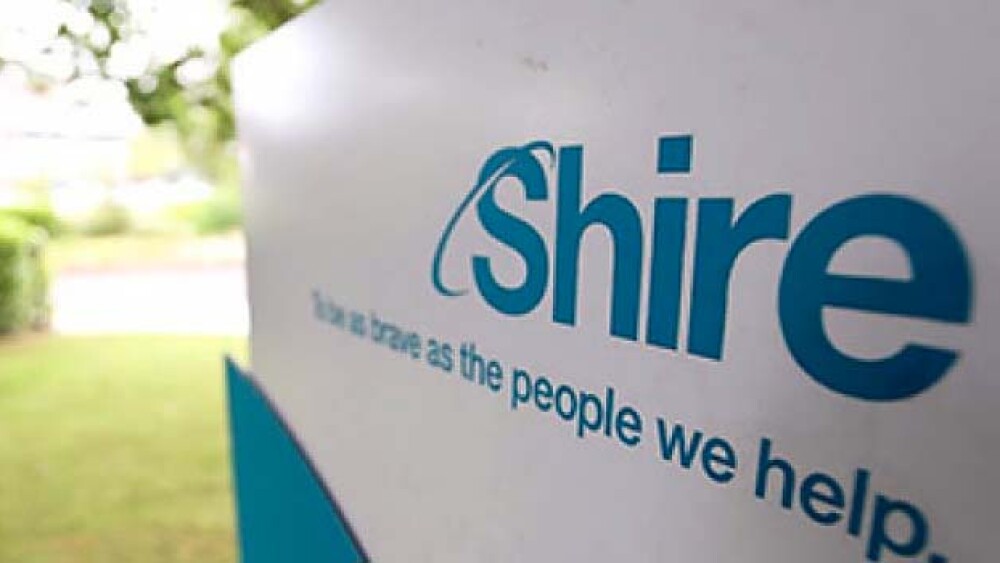An experimental treatment to address cognitive impairment in pediatric patients diagnosed with the rare disease known as Hunter syndrome failed a key trial, Shire PLC announced this morning.
An experimental treatment to address cognitive impairment in pediatric patients diagnosed with the rare disease known as Hunter syndrome failed a key trial, Shire PLC announced this morning.
Shire said the Phase II/III treatment SHP609 (formerly known as HGT-2310) failed to meet its primary cognition endpoint. Hunter syndrome (mucopolysaccharidosis II or MPS II), a rare lysosomal storage disorder, is associated with a progressive cognitive decline in the majority of diagnosed patients. Shire’s SHP609, an investigational formulation of idursulfase, was developed to be administered into the cerebrospinal fluid to directly deliver the drug to the central nervous system.
In addition to failing to meet the primary endpoint of affecting cognitive impairment, Shire said SHP609 failed to meet a key secondary trial endpoint that measured adaptive ability based on the Vineland Adaptive Behavioral Scales. That measurement looked at the development of personal and social skills, including talking, walking and motor skills, as well as interpersonal relationships and coping skills.
The trial involved 48 patients with Hunter syndrome and cognitive impairment who continued to receive and tolerate therapy with intravenous doses of Elaprase (idursulfase), Shire’s approved treatment for Hunter syndrome. Patients in the trial were injected with SHP609 or placebo once per month for 12 months.
Shire’s investigational drug SHP609 was being developed as a companion treatment for Elaprase, an intravenous enzyme replacement therapy. Elaprase is a treatment for Hunter syndrome but does not address the cognitive decline many patients experience. Shire noted that Elaprase will continue to be an important medication for Hunter syndrome and its use as a treatment is not affected by the failure of SHP609.
Howard Mayer, Shire’s head of R&D, said the company was disappointed SHP609 failed to meet its endpoints, but remains committed to serving patients with Hunter syndrome. He said the company will analyze the full data set from the trial and present it at future conferences.
Hunter syndrome is caused by a deficiency of iduronate-2-sulfatase, which is an enzyme needed to break down substances in the body called glycosaminoglycans (GAGs). Without the enzyme, GAGs build up in the body and cause damage to internal organs. That can lead to hearing loss, declined cardiac function, obstructive airway disease, enlargement of the liver and spleen and decreased range of motion and mobility. Additionally, the GAGs can lead to various physical issues such as distinct facial features, a large head and enlarged abdomen. Two of every three patients diagnosed with Hunter syndrome also face cognitive issues. Patients with Hunter syndrome typically do not live beyond teenage years.
Shares of Shire are up slightly this morning, trading at $156.67 as of 10:16 a.m.





